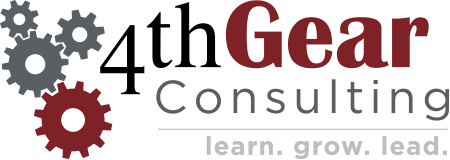 The more I learn about habit change, the more I become a fan of the daily scorecard process I use for myself and many of my coaching clients. I have found that people are much more effective at making changes in their actions and habits when they use a tool for daily awareness and conscious choices. These types of tools help us decide how we want our day to go and track the results we want to achieve, instead of looking back on the day and wondering where it went. The right tools can promote using our choices, goals, and priorities as a guide, rather than our habits, patterns, and impulses.
The more I learn about habit change, the more I become a fan of the daily scorecard process I use for myself and many of my coaching clients. I have found that people are much more effective at making changes in their actions and habits when they use a tool for daily awareness and conscious choices. These types of tools help us decide how we want our day to go and track the results we want to achieve, instead of looking back on the day and wondering where it went. The right tools can promote using our choices, goals, and priorities as a guide, rather than our habits, patterns, and impulses.
Habits are a human condition, and no one, at least no human adult, can create personal change without working through the process of reprogramming their brain. The good news is that science is teaching us much more about the process of retraining the brain, and how our brain uses habits to guide us constantly, even when it can be to our detriment. Part of teaching our brain new tricks involves regular awareness and conscious choice; and a daily scorecard is one tool that can help.
Think about the scorecard as a set of questions on which we are graded. Knowing that we are going to be graded changes how we think about the actions. Consider how employees act differently when the boss walks in or how we focus at a higher level when someone we respect or admire is nearby. We can use that focus to help create new habits.
The Daily Leadership Scorecard
Here are a few questions to use on your own daily scorecard to continue to grow and progress as a leader:
1. Did I teach anyone today?
Great leaders continuously look for opportunities to help others improve, learn, and grow. Make certain that you remember to teach, not just tell, and use questions to help others engage their cognitive thought process and consider new ideas, new solutions, and new opportunities.
2. Did I give positive feedback to anyone today?
We execute a lot of culture surveys with clients, and one of the things that routinely comes up is that managers are incredible at pointing out mistakes and offering “coaching” when something goes wrong, but most people don’t feel like their boss recognizes all the good things that get accomplished or the effort they put into their job. It’s a natural course of action. Things that break or get messed up get our attention much more quickly. We are also typically geared toward looking for things that are wrong so we can fix them. Our habit is to find mistakes and errors as a manager, or even as a spouse or parent. When is the last time we told our child they did a great job getting their homework in on time? Compare that with how quickly we might have a conversation with them if they turned the homework in late, or a grade suffered. We have to teach ourselves to recognize the daily achievements and progress that others make — at work or at home.
3. Did I listen well today?
Find anyone who describes a great leader, mentor, or coach, and it’s likely that the “L” word is included somewhere in the description. People are more effectively influenced by someone who understands them, and to understand we have to listen. Even if we think we know what’s coming, taking a breath, slowing down, and investing in the story someone is telling is part of how we lead others. It is impossible to effectively lead someone if we don’t know what is important to them. Listening not only allows us to learn more about that person, it also sends a very strong message that what they care about is important to us as well. Listening allows others to trust us and gives us permission to coach, support, and influence them so that they can accomplish more.
Every Day
Use these questions, and others that you come up with yourself based on your own goals, to measure habit change and increase your awareness about the specific changes you want to make. Every day, give yourself a score on each question. The more consistent you are with the measurement, the more successful you will be with any habit change you try to make. For extra accountability, commit to sending your scorecard to a friend, colleague, spouse, or coach on a regular basis.
I used to think that tools like this were only for people who might be too weak to master behavior change without them. I have discovered, however, that these tools are for people who are strong enough to use a support system for improving the most important things in their life. Changing your environment and finding ways to become a better leader is one of the smartest things you can do.
Leading Through Influence
We develop better leaders so they can build a better future. Contact Us to learn about leader development via our training, workshops and executive coaching.

